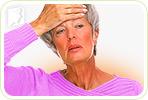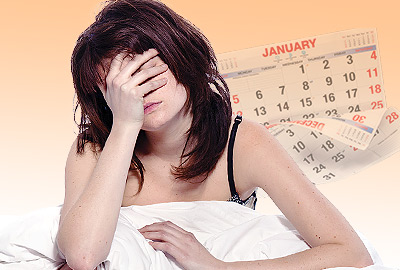As a woman approaches menopause, it is likely that she will encounter a range of menopause symptoms, such as hot flashes, loss of libido, fatigue, headaches, and vaginal dryness, among others. You may also experience night sweats during menopause. Night sweats often cause you to wake up in the middle of the night sweating and feeling cold and clammy. These episodes can be very uncomfortable and stressful. They can affect the number of hours you sleep, and in turn, your level of energy and productivity during the day.
Read on to learn four relaxing activities that you can do before bed to combat night sweats and reduce their negative effects.
Evening Walks

If the weather is nice, try going for a walk in the early evening. Head out to a quiet and serene place and maintain a comfortable pace. This will give you time and space to unwind after the day, gather your thoughts, and relax in preparation for a good night's rest.
Warm Baths

The ultimate way to relax - a bath. Take time to pamper yourself and relax your mind, body, and soul. Add some bubbles or bath salts, candles, or even calming music to help you rest. However, it is advisable to use warm water rather than hot, because hot water can raise your body temperature and make you more susceptible to night sweats.
Self-care
Indulging in some time for yourself is a perfect way to unwind. Paint your toenails, apply a facial mask, or book an evening massage. Pampering yourself will help you feel fresh and beautiful and will take your mind off of the stress of the day. By calming your mind and caring for your body, you can reduce the likelihood of night sweats.
Reading

Even if you are not an avid book reader, try getting into a good book. Reading can be a wonderful way to forget about your daily troubles and stresses. Additionally, the relaxing movement of your eyes rolling over the pages will soothe you and help you get to sleep. Opt for a book rather than a magazine, as the bright colors and glossy pages of a magazine stimulate the senses and can make relaxing a little harder.
Click on the following links to learn more about different treatments for night sweats.
Sources
- Boston Women's Health Collective. (2006). Hot Flashes, Night Sweats and Sleep Disturbances. Our Bodies, Ourselves.
- National Health Service UK. (2014). Menopause: five self-help tips. Retrieved February 9, 2016, from http://www.nhs.uk/Livewell/menopause/Pages/Menopauseselfhelp.aspx
- National Institute on Aging. (2015). Signs of the Menopausal Transition. Retrieved February 9, 2016, from https://www.nia.nih.gov/health/publication/menopause-time-change/signs-menopausal-transition



